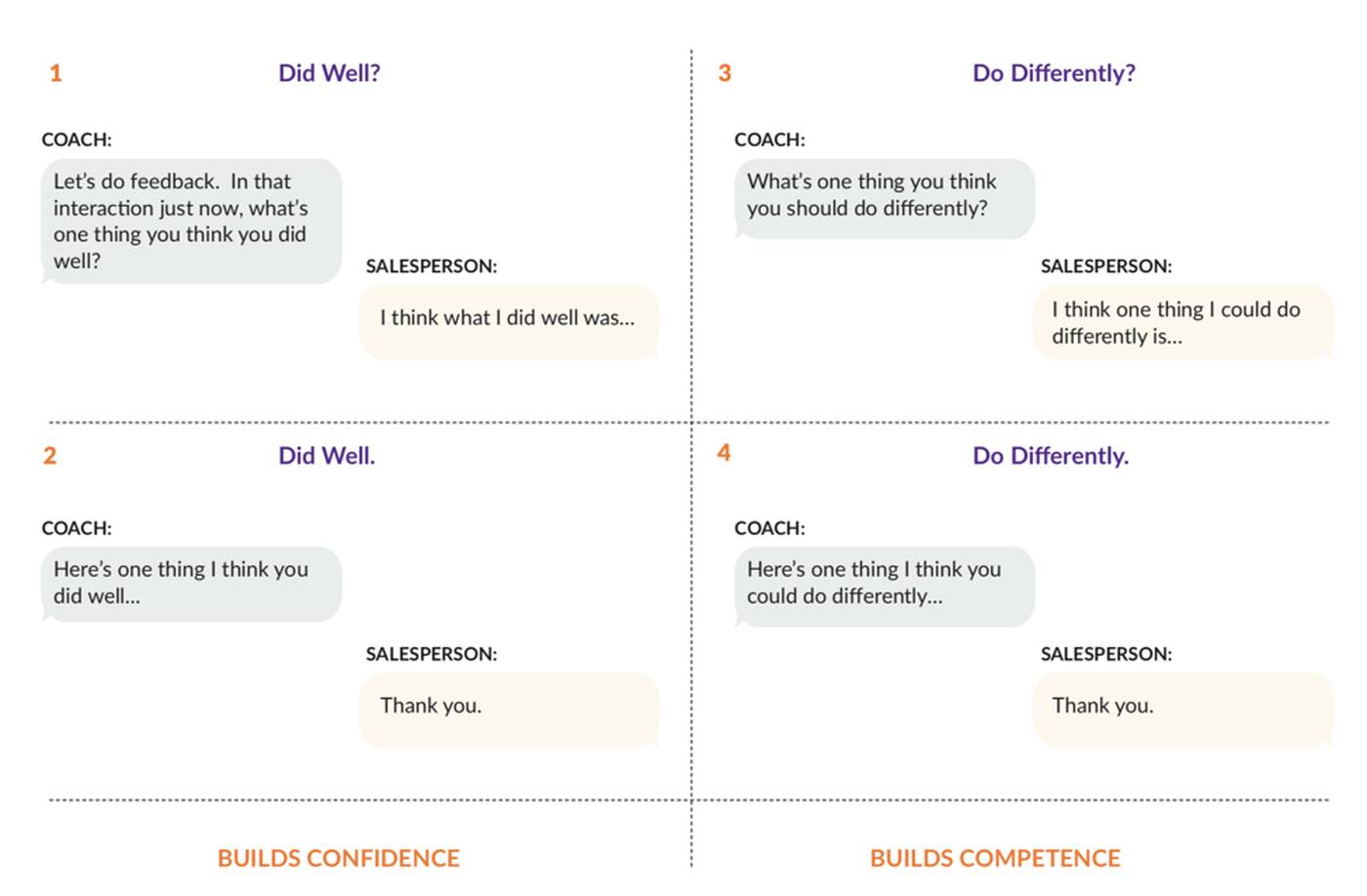Featured Faculty
Clinical Professor of Marketing, Founder and Academic Director of the Kellogg Sales Institute

Yevgenia Nayberg
COIVD-19 has upended everything about the way we work, and sales are no exception. The promotions you so painstakingly designed are out of step with your customers’ new lives. Your pitches have all moved online. And that sales plan that looked so plausible at the beginning of January? It’s obsolete.
“The world has changed, and it’s very scary right now,” says Craig Wortmann. “Sales leaders are going to need to coach salespeople on how to succeed in that new reality.”
The good news is that, perhaps surprisingly, the fundamental principles of coaching a sales team are not much different today than they were a few months ago, says Wortmann, a clinical professor of entrepreneurship and founder of the Kellogg Sales Institute. What’s different are the stakes: with stress levels skyrocketing (and budgets plummeting), the importance of getting coaching right is greater than ever.
“Coaching is always important, of course, but now is make-or-break time,” Wortmann says. “Sales leaders need to coach their sellers on how to be empathic listeners and better questioners, as well as how to be unstoppable in their commitment to helping prospects and customers make progress in a tough time.”
Here are Wortmann’s tips for coaching a successful sales team through the current crisis and beyond.
It’s a bit of a cliché, but it’s true: while many sales leaders were promoted because of their own success in sales, this is no guarantee they have the tools to coach other sellers. Specifically, many sales coaches are untrained in how to give crisp, productive, forward-looking performance feedback to those on their teams.
So as a first step, Wortmann suggests deliberately scheduling coaching conversations into every interaction—not just tacking them onto the end of other conversations or allowing them to emerge ad hoc or as time permits. After all, coaches are responsible for helping their teams “fine-tune” their messages to clients. Just as an orchestra conductor wouldn’t reserve all praise or criticism for her violin section until their quarterly check-ins—or 20 minutes before opening night—neither should a sales coach.
“You need to adjust your mindset to think of feedback as a practice. It’s something that you do over and over again as part of daily business.”
— Craig Wortmann
“You need to adjust your mindset to think of feedback as a practice,” Wortmann says. “It’s something that you do over and over again as part of daily business.”
In some ways, building in feedback is easier now than before COVID-19. Throughout his career, Wortmann has encountered pushback from sales leaders when he has insisted on frequent feedback conversations. Why? Well, giving performance feedback can be difficult.
“You’re asking sales leaders to be disciplined in delivering behavioral feedback, both good and bad—and the bad can be awkward.”
The second reason sales leaders push back is that they feel stretched. But the widespread adoption of virtual calls has lowered this barrier. With travel and commutes gone, some sales leaders are talking to their teams more often and in a more structured way—which provides more coaching windows.
“You can’t be in eight places at once, but I bet as a leader you have eight more opportunities a week to give your team feedback because you can Zoom in and Zoom out,” he says.
He recommends that whenever a salesperson completes a task—for example, a call with a prospective lead—they check in with their coaches to gather feedback focused on that task only.
“It’s immediate, context-specific, and forward-looking,” says Wortmann.
But before launching into concrete feedback, it is important to check in as human beings.
Empathy has always been key to sales coaching, but these days sales leaders need to dial it up even further—especially leaders who are prone to getting down to business.
“Right now, we need to show up for each other,” Wortmann says. “I make it a practice to first say, ‘Hey, how are you? Before I give you feedback, is everything okay?’” This simple check-in opens the conversation to the possibility of real feedback.
Opening with empathy also means acknowledging the uncertainty and stress that your team may be experiencing. If your team members are worried about job security, it is important to both address their fears and clarify the focus of your feedback.
“I let them know that the conversation is happening at a tough time for the company—and for all of us in general,” Wortmann says. “I want to make sure that we are clear that the feedback I am giving is specific to their performance on that webinar just now, for example.”
When providing feedback about those specific performances, Wortmann encourages sales leaders to use the following simple framework to build salespeople’s confidence and competence.
“You just need to remember two phrases: ‘Did Well’ and ‘Do Differently,’” he says.
To build the salesperson’s confidence, begin by asking their input on what they did well. Add your own observations, addressing specific knowledge, skills, or disciplines. Then, shift the conversation to ask what they think they should do differently, before adding your recommendations on what they can do differently.

“You can’t build competence without confidence,” Wortmann says. “So the order of the questions matters.”
This approach also makes documentation and follow-up simple for sales coaches—just log what went well and what can be done differently with that particular client the next time around.
One extra curveball: with face-to-face business migrating online, there’s a whole new dimension to the feedback needed to improve a sales team. Great sales leaders are now coaching on the granular skills and disciplines required to show up and stand out online. For instance, a salesperson who was adept at maintaining eye contact during in-person presentations may need to learn to toggle their focus between the camera and faces onscreen. Or, a salesperson who is used to sitting at a desk may now need to stand on video calls to project a more positive energy in those calls. Salespeople who use decks to communicate must now be hypervigilant about their use of visuals, since people are experiencing Zoom fatigue, and this exacerbates an already saturated visual field.
“We’re in a Zoom world now, and all that needs to be the subject of feedback,” Wortmann says.
Of course, with the overall economy in dire straits—and individuals facing a wide range of disruptions to their time and well-being—last quarter’s sales target may be hopelessly out of reach, no matter how effective your coaching.
“We’re still learning what optimal business performance looks like during a pandemic,” Wortmann says.
The key for sales coaches is to collaborate with their salespeople to get the most out of what they have, taking into account changes in people’s situations and shifts in the business landscape.
“If a parent of young children confides that he’s struggling to give only 40 percent effort this week, then his sales leader needs to mine that 40 percent for gold,” Wortmann says. “You’ll have to define what ‘great’ looks like now and revisit it again next week.”